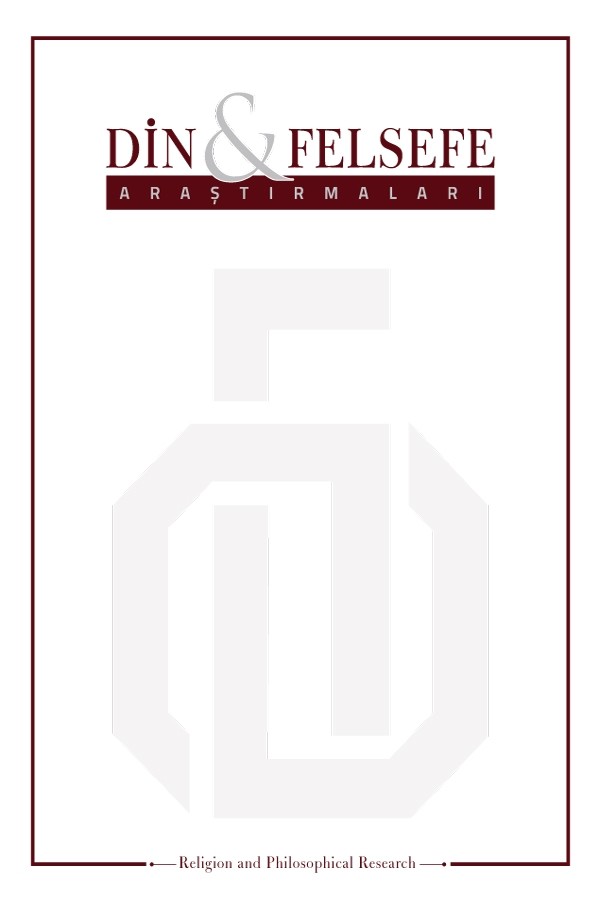
Din ve Felsefe Araştırmaları
Yazarlar: Ayşe KAYA
Konular:-
Anahtar Kelimeler:Music therapy,Religious music therapy,State anxiety,Trait anxiety,Emotional state,Perceieved stress.
Özet: This article aims to examine the effects of religion-based music therapy on the levels of anxiety, emotional state and the perceived stress of the university students. The research question is stated as follows “Is there any significant effect of the religion-based music therapy on the level of trait anxiety, state anxiety, perceived stress, and emotional state of the university students?” The study design is pretest-post-test experiment, which depends on the data collected between March and June in 2017. The population of this study consists of the Turkish university students in Istanbul. The sample of this study is composed of 80 students at the beginning of the study, and then 58 students are included who are between 19 and 30 years old. The participants filled out the Informed Consent Form and Short Symptom Check-List before participating in the experiment. Excluding criteria of the sample are having psychotic disorder, having idea of getting suicide in the past 6 months, attempting to get suicide in the past 6 months, having chronic illness, having treatment for any kind of illness, attending psychotherapy sessions, having deficiency of hearing, and getting medium or high score of Short Symptom Check-List. Passive music therapy methods were applied in all sessions of this study. The experimental group listened the stressful voices, and the religious-based songs with closed-eyes in each sessions once a week for a month. The control group listened stressful voices solely, and then they stayed slient with closed-eyes as long as the religious-song. Religious songs are composed of “Hijaz tune” which is the type of the classical Turkish musical tunes. At the first session, instrumental song in Hijaz tune which is composed by Ayşe Başak İLHAN HARMANCI for this study, is performed by a musician with nay (reed flute). At the second and third sessions, Turkish religious songs in Hijaz tune are played via CD player. At the last session, the record of the same instrumental song of the first session is played via CD player. Participants filled out the same scales at the end of the sessions. Then, the same scales are filled in by the participants one month later for follow-up results. The scales which are administered in this study are the Demographic Information Form, State-Trait Anxiety Inventory (STAI TX-I-II), Positive-Negative Affect Scale (PANAS), and Perceieved Stress Level Scale. Demographic form consists of the questions about the socio-demographic variables of the participants, which are gender, age, marital status, having the idea of getting suicide, the level of the income, the level of education, the department of education, the status of getting psychiatric treatment, deficiency of hearing, and the physical health. Short Symptom Check-List is a 5-Likert type scale, which consist of 53 items developed by Derogatis in 1992. The scale has the six sub-scales that are negative self-concept, depression, anxiety, somatization and hostility. Positive and Negative Affect Scale (PANAS) is a 5-Likert Type scale that consists of 10 positive and 10 negative affect items is developed by Watson et. al. in 1998. Each item is evaluated from 1 to 5, (1=very slightly, 2=a little, 3=moderately, 4=quite a bit, 5=extremely). StateTrait Anxitey Inventory (STAI) is a 4-Likert scale (e.g., from “Almost Never” to “Almost Always”), that consists of 40 items which is developed by Spielberger et. al. in 1983. Higher scores indicate greater anxiety. Perceived Stress Scale is a 4-Likert Type Scale (0 = Never, 1 = Almost Never, 2 = Sometimes, 3 = Fairly Often, 4 = Very Often), which consists of 10 items, and it is developed by Cohen in 1994. Higher scores indicate greater stress. It is found that there is no effect of the religious-based music therapy on the levels of the state anxiety and the positive affect at significant level. There is a meaningful effect of the religious-based music therapy for decreasing the levels of the perceived stress and the the negative affect. Besides, there is a meaningful decrease in the follow-up scores of the trait anxiety in comparison to the post-test scores of the level of the trait anxiety in the experimental group.